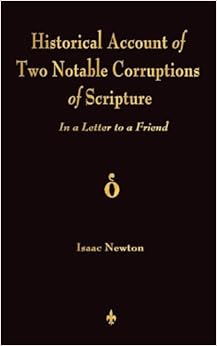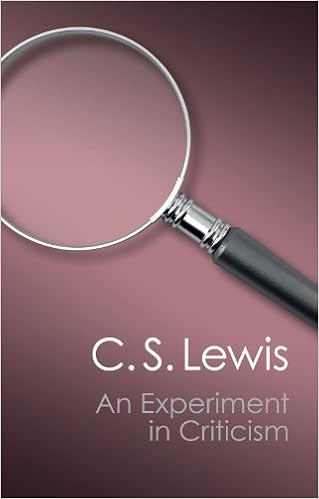Guess what has come to live in my "salon" as a birthday present from my One and Only?
He also got me these:
And a cake but that didn't last long enough to photograph.
The piano is a 1981 Baldwin 6 foot 2 grand. I gave away my 1920 Knabe player piano to a good home and upgraded. We searched far and wide for a piano that possessed all the qualities I want: even action, bell like tone in the upper register, deep resonant bass and we finally found it in a piano that had been in a recording studio for many years. It is such a blessing to play on this, especially since I have two recitals coming up, including one this Friday!
Yes ladies and gentlemen I am dishing out yet another biography of Mozart and I'm not even through reading all the biographies I've read on the man (I'm saving Otto Jahn's three volume work for last).
The author of this book, Paul Johnson, believes that Mozart's Clarinet Concerto in A K622, is the most sublime of his works so I create a link here for your listening pleasure. The clarinet doesn't come in immediately so, as they say, wait for it.

Some of you may be thinking what else can anyone say about the guy. We have a sentimental chronological time line dramatized with great license from Marcia Davenport. We have a thorough and exhaustive description of the cultural surroundings and political climate in Robert Gutman's Mozart: A Cultural Biography. What is lacking?
How about a biography that focuses solely on the composer's music?
Paul Johnson's book is short, a mere 164 pages long. But each chapter goes into different parts of Mozart as a composer and how he mastered every part of music writing.
The first chapter discusses his ability to create music when he was still young. Chapter two goes into great detail as to how Mozart mastered most of the instruments of the orchestra and consequently catered his writing to the unique attributes each instrument possessed.
He was quite flexible. If a certain orchestra was lacking in, say, clarinets, then he quickly rewrote the work to accommodate what wind instruments were available. Or not. Sometimes he transcribed the parts to another section altogether. Some orchestra works are the same piece with the emphasis on the brass and others on the reeds, each successful with the diverse timbre coloring that comes with each family of instruments.
Johnson does not avoid timelines completely. In addition to meticulously recording what compositions were written when and where, he also includes, in Chapter Three, when Mozart lived in Salzberg, Paris, London or Vienna. He writes of his marriage to Constanze and how that affected his composing.
Chapter four is about Mozart's operas, when and how they were written. It is interesting that even though some of Mozart's greatest compositions were instrumental, what carried his career were his operas. He wrote twenty-three operas, four in the last few years of his life, two in his final year (and his first when he was only ten).
The last chapter concerns Mozart's death. Johnson attempts to dispel prevailing myths, such as Mozart died a pauper and alone. According to Johnson, many people attended his funeral and he was buried as most people were then, in a public burial lot.
It is interesting that Johnson has a different take on Mozart's father Leopold than the previous biographers who cast him in an ill-favored light. Johnson takes the opposite stance, that his father was not the over-bearing monster, trying to make himself through his son, but rather was mostly trying to bestow good sense on him. Frankly, that is the conclusion I had gathered from only reading Mozart's letters.
He also insists that Mozart was not perpetually poor and that writing "begging letters" as he calls it were normal during a time when paper currency was rare. Mozart and later his widow, paid their debts faithfully. Unlike the conclusions of Davenport who asserts that Constanze learned good economy from her second husband, Johnson insists that she was financially sensible all along and that Mozart actually made very good money for the time period in which he lived.
He supports this with comparing the salary of Mozart to many other professions of the time as well as the life-style he kept. Davenport and Gutman conclude that Mozart lived beyond his means. Johnson argued otherwise and states that borrowing money was a common practice then.
Reading these three biographies, as well as Mozart's letters, made me realize that different people can access the same information yet arrive at varying conclusions.
The most charming aspect of this book is Johnson's analysis of Mozart's work. He openly inserts his own opinion as to his favorite compositions and his descriptions made me want to run immediately to my Spotify and download as many of Mozart's compositions as possible.
Mozart wrote hundreds of compositions and it is impossible to have all of them catalogued although Ludwig von Koeschel valiantly attempted in 1862. That is why when you look at works by Mozart it will have a "K" followed by a number opus. The "K" or "KV" stands for Köchelverzeichnis.
Even though this biography is brief, it contains a lot of indepth detail concerning the instrumentation of Mozart's work, which not everyone would find interesting. However, I don't think it should deter even the lay person but encourage one to further appreciate the genius of Mozart and hopefully inspire them to listen to his music.
He also got me these:
And a cake but that didn't last long enough to photograph.
The piano is a 1981 Baldwin 6 foot 2 grand. I gave away my 1920 Knabe player piano to a good home and upgraded. We searched far and wide for a piano that possessed all the qualities I want: even action, bell like tone in the upper register, deep resonant bass and we finally found it in a piano that had been in a recording studio for many years. It is such a blessing to play on this, especially since I have two recitals coming up, including one this Friday!
Yes ladies and gentlemen I am dishing out yet another biography of Mozart and I'm not even through reading all the biographies I've read on the man (I'm saving Otto Jahn's three volume work for last).
The author of this book, Paul Johnson, believes that Mozart's Clarinet Concerto in A K622, is the most sublime of his works so I create a link here for your listening pleasure. The clarinet doesn't come in immediately so, as they say, wait for it.

Some of you may be thinking what else can anyone say about the guy. We have a sentimental chronological time line dramatized with great license from Marcia Davenport. We have a thorough and exhaustive description of the cultural surroundings and political climate in Robert Gutman's Mozart: A Cultural Biography. What is lacking?
How about a biography that focuses solely on the composer's music?
Paul Johnson's book is short, a mere 164 pages long. But each chapter goes into different parts of Mozart as a composer and how he mastered every part of music writing.
The first chapter discusses his ability to create music when he was still young. Chapter two goes into great detail as to how Mozart mastered most of the instruments of the orchestra and consequently catered his writing to the unique attributes each instrument possessed.
He was quite flexible. If a certain orchestra was lacking in, say, clarinets, then he quickly rewrote the work to accommodate what wind instruments were available. Or not. Sometimes he transcribed the parts to another section altogether. Some orchestra works are the same piece with the emphasis on the brass and others on the reeds, each successful with the diverse timbre coloring that comes with each family of instruments.
Johnson does not avoid timelines completely. In addition to meticulously recording what compositions were written when and where, he also includes, in Chapter Three, when Mozart lived in Salzberg, Paris, London or Vienna. He writes of his marriage to Constanze and how that affected his composing.
Chapter four is about Mozart's operas, when and how they were written. It is interesting that even though some of Mozart's greatest compositions were instrumental, what carried his career were his operas. He wrote twenty-three operas, four in the last few years of his life, two in his final year (and his first when he was only ten).
The last chapter concerns Mozart's death. Johnson attempts to dispel prevailing myths, such as Mozart died a pauper and alone. According to Johnson, many people attended his funeral and he was buried as most people were then, in a public burial lot.
It is interesting that Johnson has a different take on Mozart's father Leopold than the previous biographers who cast him in an ill-favored light. Johnson takes the opposite stance, that his father was not the over-bearing monster, trying to make himself through his son, but rather was mostly trying to bestow good sense on him. Frankly, that is the conclusion I had gathered from only reading Mozart's letters.
He also insists that Mozart was not perpetually poor and that writing "begging letters" as he calls it were normal during a time when paper currency was rare. Mozart and later his widow, paid their debts faithfully. Unlike the conclusions of Davenport who asserts that Constanze learned good economy from her second husband, Johnson insists that she was financially sensible all along and that Mozart actually made very good money for the time period in which he lived.
He supports this with comparing the salary of Mozart to many other professions of the time as well as the life-style he kept. Davenport and Gutman conclude that Mozart lived beyond his means. Johnson argued otherwise and states that borrowing money was a common practice then.
Reading these three biographies, as well as Mozart's letters, made me realize that different people can access the same information yet arrive at varying conclusions.
The most charming aspect of this book is Johnson's analysis of Mozart's work. He openly inserts his own opinion as to his favorite compositions and his descriptions made me want to run immediately to my Spotify and download as many of Mozart's compositions as possible.
Mozart wrote hundreds of compositions and it is impossible to have all of them catalogued although Ludwig von Koeschel valiantly attempted in 1862. That is why when you look at works by Mozart it will have a "K" followed by a number opus. The "K" or "KV" stands for Köchelverzeichnis.
Even though this biography is brief, it contains a lot of indepth detail concerning the instrumentation of Mozart's work, which not everyone would find interesting. However, I don't think it should deter even the lay person but encourage one to further appreciate the genius of Mozart and hopefully inspire them to listen to his music.











